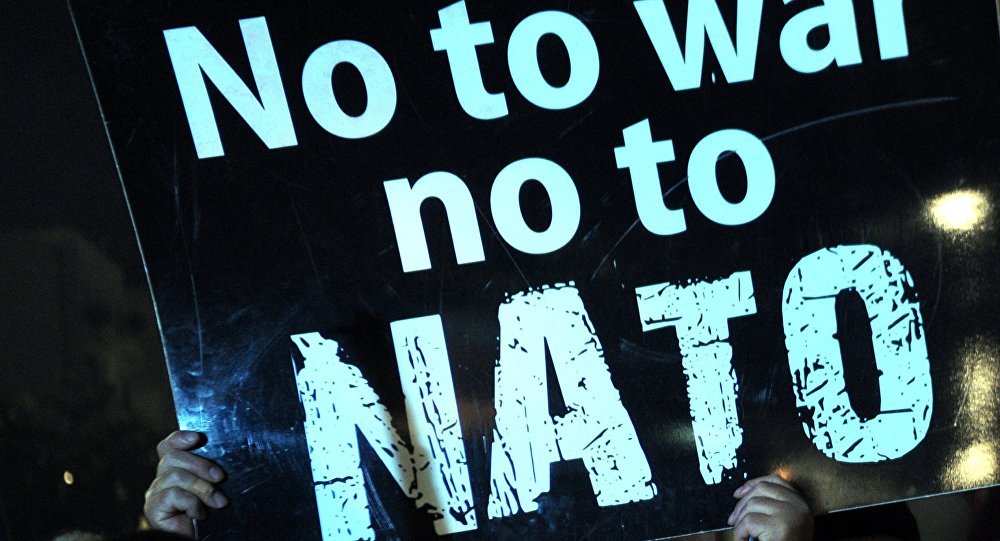On 5th January 2016, as the second oil price fall approached its lowest point, I wrote an article in which - amongst other things - I challenged the entire theory of a Russian budget crisis, which was at that time fashionable.
I said that if the fall in oil prices did cause a gap in Russia's budget that Russia would be unable to fill from its Reverse Fund, the Russian government would simply do what all other governments regularly do when they find themselves in the same situation, which is borrow the money to fill the gap. My precise words were as follows:
"If Russia ever were to find itself in a position where it had to finance a budget deficit of 4.4% of GDP after the Reserve Fund had run out, it would do so by raising the money by floating a bond on the international money markets - or conceivably in Russia - something which most governments do most of the time.As if to prove my point, just a few weeks later, on 5th February 2016, the Russian government unexpectedly announced that it was going to do just that - borrow on the international money markets by floating a eurobond. The total amount it said it planned to raise this year in this way was $3 billion.
The sanctions do not prevent Russia from doing this and - since what we are talking about is a sovereign bond - it is legally doubtful they can be extended to prevent it."
The announcement provoked surprise, with most people seemingly unaware that the sanctions do not prevent the Russian state - as opposed to certain sanctioned Russian individuals and companies - from borrowing in the international money markets. Few people seemed to understand that without a UN Security Council Chapter VII Resolution it is almost certainly legally impossible to bar a sovereign state like Russia from borrowing in the international money markets in peacetime.
When the point was finally understood talk followed that the proposed eurobond was simply a device to circumvent the sanctions. The Russian state acting as a sort of agent would supposedly borrow on the international money markets and pass the money on to the sanctioned individuals and companies to provide them with the money they were barred from raising themselves.
On 11th March 2016, in a subsequent article, I said this was nonsense:
"Quite apart from the fact that doing something like that would be the one guaranteed way of scaring off Western buyers from future bond issues, it would mean the Russian government is willing to take on the foreign debt of Russian companies onto its books, thereby transforming their debt into sovereign debt.In the event the prospectus of the eurobond contained an undertaking that any money raised from the sale would not be provided to sanctioned individuals or companies but would be used to strengthen Russia's budget and its foreign exchange reserves.
Anyone with any knowledge of the way the Russian government does its business would know that is inconceivable. Given the exorbitant cost in interest payments to the country's budget of doing such a thing, there is no possibility anyone in the Russian government is considering it, since it violates the fundamental principles of sound budgeting and financial management upon which the Russian government runs its budget."
I also pointed out in the same article the true reason for Russia floating a eurobond when there are more than sufficient funds in the Reserve Fund to cover fully Russia's budget needs this year:
"Briefly, the Russian government wants to show the world that it can fund its budget by borrowing if it has to and that the sanctions do not prevent it doing so.Though over time the Western financial press rather grudgingly admitted there was nothing illegal about Russia floating a eurobond there continued to be claims - or hopes - it would fail to find buyers.
In passing, a successful bond issue will also show that the market does not agree with the repeated downgrades of Russia's credit rating carried out by the three big international credit rating agencies - a fact which the Russians, who are in constant dialogue with the credit rating agencies, will doubtless point out to them."
As to that here is what I said in the same article on 11th March 2016:
"Russia's exceptionally strong financial position - with a strong government committed to keeping the deficit low and under control, very low levels of government debt, large foreign currency reserves, a big trade surplus, an abundance of natural resources, and a good recent history of paying debt on time despite the oil price fall and the sanctions - means it should have no difficulty (borrowing if it wants to).Strong indications the eurobond issue would indeed be a success in fact came within days of my writing that. In mid March 2016 Gazprom tapped the Swiss capital market looking to raise 500 million Swiss francs ($505 million). The issue was be four times oversubscribed.
As to the likely success of the issue, the growing consensus is that - as I predicted - barring a sudden catastrophic change in the international situation or in the world economy, it will find no lack of buyers and will therefore be a success, though - as The Economist also correctly points out - the Russian government can also borrow on its own domestic financial markets within Russia itself - as it has previously done - if it has to."
Faced with this situation Western governments had a choice. They could have bowed to the inevitable accepting that Russia had a right to float a eurobond for which it would have no difficulty finding buyers. Or they could try to sabotage it. Not surprisingly they chose the second option.
The result was a sustained campaign by Western governments to sabotage the sale. This took various forms. The one that attracted most attention was a campaign to pressure Western banks - some of which had shown an interest in helping Russia place the eurobond - to boycott the sale.
Other forms received less publicity. They included warnings to Western fund managers to get their clients to boycott the eurobond.
There were also legally dubious efforts to prevent Euroclear and Clearview, the main Western bond depositories, from providing clearing services despite trade in the bonds being entirely legal and despite the fact that Euroclear and Clearview are private entities which have agreements with Russia to provide Russia with such services for its bonds.
Western leaders and officials appear to have assumed these steps would stop the sale or would cause its failure with the bonds offered failing to find buyers.
Placing a government bond is a massively complex operation. It is the job of the banks that manage the sale to place the bonds most advantageously on the market. That requires deep knowledge of the market in order to achieve the most effective outreach to potential buyers. There are also immense technical challenges in receiving and processing the bids, in deciding amongst them if the issue is oversubscribed, and in transferring the bonds to the buyers.
A small number of Western banks have the necessary expertise to carry out such operations and do so with great efficiency. By contrast Russian banks like Sberbank and VTB have little such experience since by comparison with Western banks they are relatively small and have far shorter trading histories. It is not therefore surprising that Western governments apparently assumed that without help from Western banks the bond sale could not happen or would fail.
As for Euroclear and Clearview, the clearing services they provide not only provide buyers with security for their bonds but mean they can dispose of them electronically without having to go through the cumbersome process of despatching paper certificates.
By mid April Western officials appear to have convinced themselves their campaign to stop the issue had worked. Under Western government pressure most - though not all - Western banks had pulled out of involvement in the placement. The banks that were left were smaller ones that do not usually take the lead in making such placements.
Meanwhile reports circulated that worries about the lack of guaranteed clearing services by Euroclear and Clearview together with Western government warnings were deterring the big Western institutional investors from participating in the bond sale.
The Western financial press - obviously heavily briefed by Western officials - started to report that Russia's attempt to float the bond was proving to be a failure. Certain comments by Russian Finance Minister Siluanov that Russia did not actually need to borrow in the international money markets this year (which is true) were misrepresented to mean the sale of the bond had been called off.
The result was that when Russia floated its eurobond a few days ago - with Russia's VTB bank acting as the sales manager - the Western financial press was taken by surprise. This was so even though the plan to float the bond had been announced more than 2 months ago.
As news of the sale filtered in the Western financial press - again no doubt taking its lead from Western officials - retreated into denial.
The Financial Times initially called the response "tepid", reporting the Russians had only raised $1.7 billion out of the $3 billion they were seeking.
If the Russians had indeed offered bonds worth $3 billion for sale but had only been able to sell bonds to a value of $1.7 billion that report would have been true and it would have been right to call the bond sale a failure. In fact the Russians offered 8,750 10 year bonds each at a price of $200,000 with an annual yield of 4.75% and sold all of them. The total asking price of the bonds offered for sale was $1.75 billion (8,750x200k) - exactly the amount which was raised from the sale.
The Financial Times confused the $1.75 billion of bonds the Russians offered in this one issue with the figure of $3 billion of bonds the Russians say they may sell over the course of the whole year. VTB - the bank that managed the sale - has confirmed there may be more sales of more bonds later this year. The Russian Finance Ministry however says this will depend on whether the state of Russia's budget justifies doing it.
As for the demand for the bonds, the Russians say the offering attracted bids totalling $7 billion ie. the sale was more than three times oversubscribed. That does not make the response look "tepid".
As the success of the sale became increasingly clear, the Western financial press switched to saying that demand for the bonds came largely from investors within Russia, or from Russian investors buying the bond from offshore. They also claimed there was little trading in the bonds in the secondary bond market, and pointed out that the 4.75% annual interest Russia is paying on the bonds is high, which they say is proof that demand for the bonds was weak.
Why the fact the bond might have been bought principally by Russian investors (investing in a bond issue of their own government) should be a problem is not explained. However it seems it may not even be true. The Russians have not provided a precise regional breakdown of all the bids they received. However they say 70% of the bonds with a value totalling $1.2 billion were sold to foreign investors (a third of them British) and that these foreign investors were not Russians using offshore accounts. Since the Russians checked all the bids before deciding which of them to accept they are in a position to know.
As for the two other claims - that there was little trading in the bonds in the secondary bond market and about the 4.75% interest rate - they are serve as good examples of the sort of portentous statements Western commentators like to make, which actually mean little and which more often than not - as in this case - simply beg the question.
This was a bond floated by a country - Russia - which is currently under sanctions and which is in conflict with the Western powers. Its sale was managed without the involvement of any of the big Western banks. There is for the moment uncertainty as to whether or not the two big depositories, Euroclear and Clearview, will provide clearing services for it.
Of course a bond floated in such circumstances would have to be offered at a higher rate of interest to attract buyers. Of course some buyers would have doubts about buying it, which together with concerns about the the absence of clearing services provided by Euroclear and Clearview and the non-involvement of the big Western banks no doubt accounts for the alleged lack of trading in the bonds in the secondary bond market. It tells us nothing about the relative success or failure of the bond sale to make these points. The real point is that the bond was nonetheless and despite these obstacles successfully sold and that the interest Russia must pay on it - 4.75% - is by no means excessively high and is well below distress levels. As for the alleged lack of trading in the bond in the secondary bond market, that will almost certainly pick up over time as investors doubts are assuaged.
In summary, not only has Russia successfully floated a bond despite the sanctions and despite the Western campaign to sabotage it, but the bond was heavily oversubscribed and was sold mostly to foreign investors. Even Russia's waspish former Finance Minister Alexey Kudrin - a man who has never been shy of talking down Russian economic successes - says the bond issue was a success. On the facts it is impossible to disagree with him.
That however is only half the story.
Even if the Western campaign to sabotage the bond was on its own terms a failure, it did nonetheless produce a result, though one completely different from the one Western governments intended. It showed that Russia can float bonds in the international money markets without the help of Western banks and despite the denial of clearing services by Euroclear and Clearview and in the face of a sustained campaign by Western governments to stop it doing so. Russia has been able to do this by relying on its own institutions first and foremost its own banks.
By campaigning to stop Western banks from participating in the bond sale Western governments ensured that it was a Russian bank - VTB - that managed the sale. In the process VTB has gained valuable experience in providing this service, making it more capable of doing so again in the future.
The reason the decision was taken to offer bonds worth only $1.75 billion for sale instead of the full $3 billion talked about was almost certainly VTB's inexperience in managing such a sale, not worries about a lack of buyers. The same was almost certainly true of the decision to conduct the sale over 2 days rather than one. The total bids on the first day apparently came to $5 billion so it cannot have been worries about lack of buyers on the first day that lay behind these decisions. However limiting the offering to $1.75 billion instead of $3 billion and holding the sale over 2 days rather than one is precisely the sort of step that is sensibly taken in order to reduce the pressure on an inexperienced bank and its sales team so as to avoid mistakes.
The experience VTB has now gained through its successful conduct of the sale will make it more capable of carrying out such sales in future. As it gains experience it will be able to manage larger sales over shorter periods. With each offering its reach will grow, extending to more of the high value international investors Russia wants to attract when it sells its bonds.
As for the attempts to block Russia using the clearing services provided by Euroclear and Clearview, these are legally speaking so dubious - given that what is involved are trades in perfectly legal bonds - that if Euroclear and Clearview persist with them they are likely to face legal challenges. The Russians have confirmed they are in talks with Euroclear and they are almost certainly in discussion with Clearview as well. No doubt their lawyers - the British law firm Linklaters & Alliance - will be explaining to Euroclear and Clearview during those talks that the Russians are reserving all their legal options and that none have been ruled out. Given that the attempt to sabotage the sale of the bonds has been a failure there is little point any longer in denying them clearing services. Probably Euroclear and Clearview have already come round to this view and the probability is they will quietly agree to provide the bonds with the usual clearing services shortly.
The attempt to block Russia's access to clearing services for its bonds - just like the earlier threats to drive Russia out of the SWIFT interbank payments system and to stop Russian banks from providing debit and credit card services through Visa and MasterCard - in fact exposes the basic fallacy of the West's whole approach to Russia. Western politicians and Western officials simply cannot grasp that Russia is as sophisticated a society as their own.
Ultimately Euroclear and Clearviews are just a depositories, just as SWIFT is just an electronic payment system and Visa and MasterCard are just card providers. There is no magic about what they do. Western leaders and officials however always seem to think there is. It never seems to occur to them that others like the Russians if barred from using them can simply duplicate what they do.
This pattern of misguided belief in Western superiority - and Russian inferiority - recurs again and again. Western leaders and Western officials wildly overestimated the effect of the sanctions on Russia, assuming they would result in a credit crunch. They apparently believed the entire Russian banking system would grind to a stop if it was disconnected from SWIFT and that a threat to do so would panic the Russians into making political concessions. They also seem to have believed that the mere suggestion that Visa and MasterCard might block debit and credit cards issued by Russian banks would lead to a crisis of confidence in the Russian banking system.
In the event the Russians have had no difficulty meeting their financial obligations despite the sanctions and the anticipated credit crunch has simply not happened. Meanwhile, in response to the threats to disconnect Russian banks from SWIFT, the Russians have developed their own electronic interbank payment system as a potential alternative to SWIFT. It was successfully tested earlier this year and though for the moment it is only functioning as a back-up, in the event of Russia's disconnection from SWIFT it could be activated immediately. Similarly what the veiled threats to interfere with the operation of Russian debit and credit cars has done is made Russia introduce its own Mir bank card, wholly independent of Visa and MasterCard, both as a back-up and as an alternative to them.
Notwithstanding this record of failure, Western politicians and Western officials seem to have been blinded by the same assumptions of Western superiority - and Russian inferiority - in relation to the recent bond sale.
They seem to have assumed that no Russian bank would be able to duplicate the sort of management of a multi-billion dollar sovereign bond sale that Western banks can provide. They also seem to have assumed that if Western depositories like Euroclear and Clearview declined to offer the bonds their clearing services that would stop the sale of the bonds dead in its tracks.
In fact Russia already has its own bond depository systems, including ones set up in collaboration with China to provide clearing servicing for bonds issued in Chinese currency. As Russia increasingly switches to bonds floated in its own currency and in Asian currencies there is no reason why these depository services should not be extended to provide clearing services for all types of bonds that Russia issues. As a matter of fact, though it has received scant attention, at the same time that Russia was floating its eurobond in the international money markets, it also successfully floated over a 2 week period on its own domestic market three rouble bond issues to a total value of around $600 million.
The biggest mistake of all is however in Western leaders' failure to understand their own markets.
At a time when there is a general shortage of safe bonds it should have been obvious that a bond offered by Russia - financially one of the world's strongest states - which comes with a very good rate of return because of the (relatively) high interest rate would have no difficulty finding buyers since it would be seen as both highly profitable and extremely safe. Using legally dubious means to try to stop it was frankly foolish and was an invitation to failure. So of course it has proved.
At its most basic level what it has done is confirm the point I made originally: the Russians are able to raise all the money they need on the international money markets and there is nothing Western governments can do - short of declaring war - to prevent them.
It is however even bigger than that. By trying to block the Russians from using the services of Western banks and Western depositories to float their bond what Western governments have actually achieved is force the Russians to do it themselves. The result is that the Russians have now gained knowledge of how to conduct a multi-billion dollar international sovereign bond sale, just as previous Western actions forced them to set up their own electronic interbank payment system in place of SWIFT and create their own Mir bank card.
Having gained this knowledge the Russians have no reason not to use it and there is no reason to think they won't. The Finance Ministry is already saying Russia will in future use only its own banks and depositories when conducting future bond sales. Perhaps it's exaggerating but more likely it means what it says. Why after all shouldn't it?
Truly Western governments when it comes to Russia seem intent on proving Nietzsche's dictum true: that which does not break us makes us stronger. Certainly that has been true of Russia's eurobond sale. By trying and failing to sabotage it the West has only managed to make Russia stronger.







Although I barely understood the article lol.
This ill will -desire to make life difficult (if not impossible) -that the US bears toward any nation refusing to subit to its political will is truly ugly.